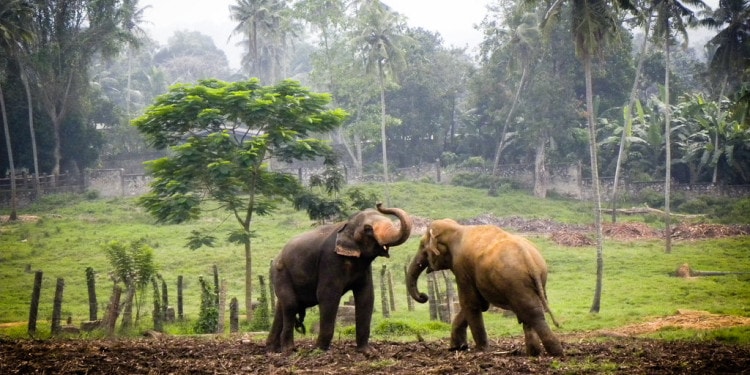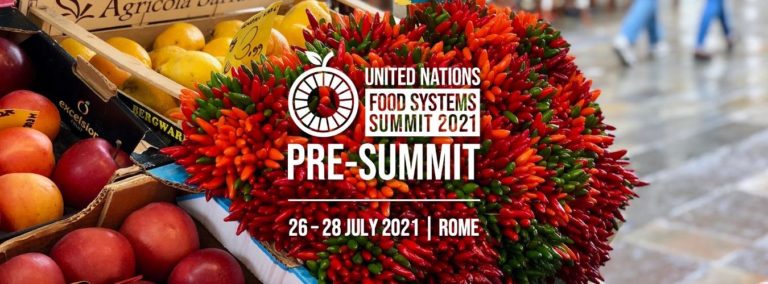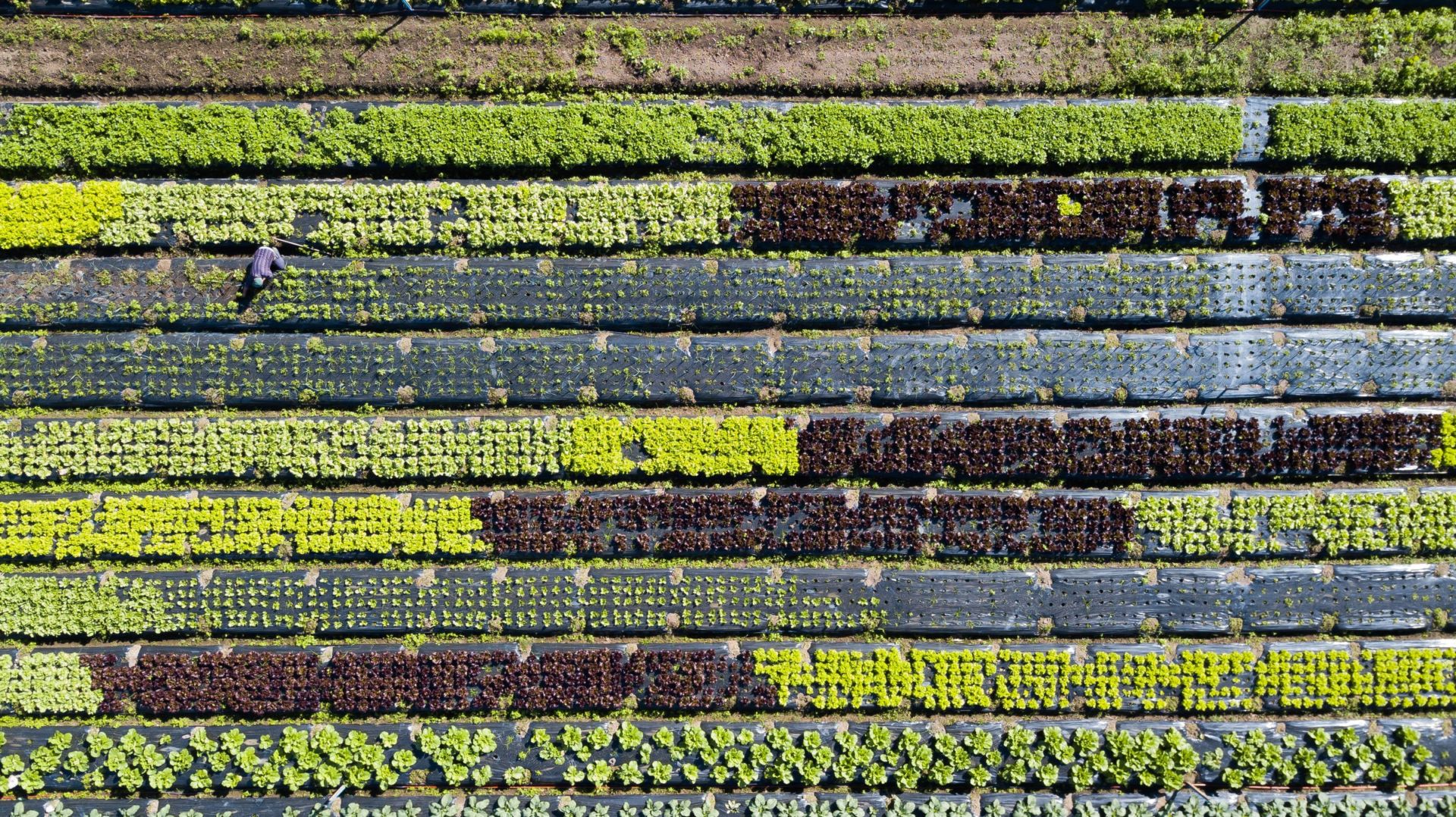“It doesn’t matter if global or national leaders talk love or make war, it is people who starve.”
paraphrased from an African proverb about elephants trampling the grass when they fight.
With only half of 2021 behind us, we have already experienced a raft of high-level meetings and communiqués organized by groupings of countries, international organizations, non-profits, and the private sector. Often the “product” is an expression of grand intentions and aspirations. These noble words typically languish with time, because extrinsic factors such as a pandemic or extreme weather, one-upmanship, organizational competitiveness or political wrangling result in a stalemate, inaction or best case, limited progress. On the near-term calendar is another such gathering, this time around food systems. The upcoming United Nations Food Systems Summit (UNFSS) scheduled to take place in New York during the UN General Assembly aims to fight famine and reground food systems on a sustainable basis.
Can this meeting succeed where so many others have failed? Consider that it takes virtually no education, intelligence, or specialized expertise to know that the global population is growing, that drought or flooding is decimating the ability to grow food and is disrupting supplies from the farm to the consumer, that a human virus is harshly affecting everything, all translating into more millions starving or malnourished. We can all agree on that, and yet, as we now know, the outcome is in doubt. A closer look at the process reveals the risks of failure.
Can this next “Food Systems Summit” be different?
Originally announced in October 2019, three UN organizations took on the leadership, namely FAO, IFAD, and WFP. In September 2021 UN Secretary-General António Guterres will convene the “Food Systems Summit” as part of the UN Decade of Action to achieve the Sustainable Development Goals (SDGs) by 2030. This will be the culmination of a process that has been going on for more than one year.
The Summit leadership has set forth a very challenging set of desired outcomes, namely:
- Generate significant action and measurable progress towards the 2030 Agenda for Sustainable Development. The Summit will succeed in identifying solutions and leaders and issuing a call for action at all levels of the food system, including national and local governments, companies, and citizens.
- Raise awareness and elevate public discussion about how reforming our food systems can help us all to achieve the SDGs by implementing reforms that are good for people and planet.
- Develop principles to guide governments and other stakeholders looking to leverage their food systems to support the SDGs. These principles will set an optimistic and encouraging vision in which food systems play a central role in building a fairer, more sustainable world.
- Create a system of follow-up and review to ensure that the Summit’s outcomes continue to drive new actions and progress. This system will allow for the sharing of experiences, lessons, and knowledge; it will also measure and analyze the Summit’s impact.
To get there, over more than a year has been devoted to regular online meetings, public forums and surveys, all aimed to obtain a range of perspectives and ideas to develop food systems that cater to all. For example, Foreign Policy, in partnership with the Embassy of the UAE in Washington, launched a three-part event series to explore solutions for climate-smart agriculture, and in that context, held a “virtual dialogue” with “farmers on the frontier of climate change” which led to important insights for all participants (to listen to the dialogue, click here).
The process culminated in a final three-day pre-summit meeting taking place in Rome, Italy from July 26-28, 2021, in partnership with the Government of Italy.
Unlike the G7 and G20 Summits also hosted by Italy, this pre-summit is more like a “People’s Summit”, focused on in-person, community components through a virtual program and platform. And it embraces more than just official delegates, bringing together a wide range of participants, from youth, farmers, indigenous peoples, civil society, researchers, private sector to policy leaders and ministers of agriculture, environment, health, nutrition, and finance.
As explained on the UNFSS website, the event “aims to deliver the latest evidence-based and scientific approaches to food systems transformation from around the world, launch a set of new commitments through coalitions of action and mobilize new financing and partnerships. All of this will be achieved by fostering diverse engagement from all quarters to uncover the broadest range of solutions and have maximum impact, together.”
The pre-Summit has moved from those broad aspirational goals to “put meat on the table”, so to speak by:
- Bring together the best ideas from all of the Summit’s structures while also identifying priorities and distilling a common vision that will lie at the heart of the UN Secretary-General’s statement of action at the Summit.
- Serve as a pledging moment for governments, businesses, civil society, and other players to announce new commitments to support food systems transformation and advance game-changing solutions through multi-stakeholder collaboration.
- Provide Heads of State and other public and private leaders an opportunity to feature and advance their commitments to action, set a tone of leadership and bold ambition, and inspire the engagement of many others ahead of the Summit.
- Promote a global discourse and narrative that puts food systems at the center of global efforts to achieve the SDGs, with vast virtual engagement and a coordinated advocacy and communications campaign in all regions of the world. This discourse will highlight the importance of food systems for progress on climate, development finance, health, human rights, and other global priorities.
- Foster a sense of community by bringing together countries, stakeholders, and constituencies in all parts of food systems from all parts of the world.
- Mobilize public and private investments to drive food systems transformation and prioritize game-changing solutions.
The meeting started on July 26 with thoughtful and inspiring statements from Prime Minister Draghi of Italy, the host country and from Antonio Guterres, the United Nations Secretary-General, who reminded participants that up to 811 million people faced hunger in 2020 – as many as 161 million more than in 2019. Inefficient global food production is at the root of a huge rise in hunger as well as one-third of all emissions and 80 percent of biodiversity loss, he said, calling on all countries to transform food systems to speed up sustainable development.
What to Make of This?
On the one hand, the focus on community engagement means that support will be closer to people living the difficult realities of food system challenges and opportunities. It will be better able to use the various social media channels, far more effectively than many such other gatherings with ostensible lofty goals. Further, at this point, it appears that the three food UN organizations and their leaders have been able to work cooperatively without apparent major turf battles distracting from the ultimate objective. A major improvement compared to say international conferences on nutrition. And the meeting gave them a platform on which their voices could be heard.
Planet earth, shame on us that we let a single person go to bed hungry. 41 million people are on the brink of famine TODAY. We have the expertise to end hunger, but we urgently need the money. This is a global call to action – all hands on deck! #UNFSS2021 pic.twitter.com/RWjXWeGNNc
— David Beasley (@WFPChief) July 26, 2021
On the other hand, mobilizing the public has had some unexpected and not always positive results. It is clear that the official position got welcome exposure obtaining applause and support from several elements in the private sector – for example, from the dairy industry, pleased that the role of milk is recognized as “an important part of a healthy, balanced and sustainable diet”.
The food we eat brings us together as families, communities & nations. It underpins our cultures, our economies & our relationship with the natural world. #FoodSystems touch every aspect of human existence. Food & agriculture lie at the ❤️ of the #SDGs. Image by @FAO #UNFSS2021 pic.twitter.com/XW2se6fYHb
— Dr David Nabarro (@davidnabarro) July 25, 2021
The meeting gave an opportunity to the UN organisations to express their message:
5 benefits of agri-#FoodSystems transformation👇🏻#UNFSS2021 pic.twitter.com/5eo3f6DW77
— FAO (@FAO) July 26, 2021
And it gave to Prince Charles the occasion of an inspired message:
HRH The Prince of Wales joins the #UNFSS2021 Pre-Summit with an inspiring message on #FoodSystems and why we must put nature back at the heart of the equation. @ClarenceHouse
Watch in full 📺 https://t.co/44wJlVauEP pic.twitter.com/cTuJuKAuwi
— UN Food Systems Summit 2021 (@FoodSystems) July 28, 2021
But the meeting disappointed civil society activists, particularly small-scale food producers, Indigenous peoples and human rights groups. They have all sounded the alarm complaining the meeting was not sufficiently inclusive, with some feeling that their point of view was ignored from the very start of meeting preparations last year. A letter to UN Secretary-General António Guterres signed by 550 organisations detailing these concerns that was sent out in March 2020 remained unanswered to this day.
Tweets from opponents multiplied, as this one from the ETC group:
🚨 New communiqué 🚨
Hijacking food systems: technofix takeover at the #UNFSS2021
“The FSS is not about changing food systems, but about spinning a story that props up & expands the industrial food chain at the expense of other food systems”
Read more: https://t.co/1A2hQDiE2E pic.twitter.com/QyswvtLD7Z— ETC Group (@ETC_Group) July 23, 2021
The powerful Via Campesina, a global farmers organization, roundly rejected the pre-summit results:
5Bn people on the planet do diverse mixed production systems. We feed the world, not Corporations! We therefore reject the @FoodSystems Summit that is being held in our names. #NotInOurNames UNAC- Mozambique pic.twitter.com/HEsQI1Kgbd
— La Via Campesina (@via_campesina) July 29, 2021
Finally, getting global attention to food systems is hard to envision except as a sub-set of climate change, pandemic, and gender equity. To its credit, the pre-summit meeting has included the need for mobilizing public and private investments.
That said, as to new large public funding, with the establishment of a COVID-19 megafund, with the Paris Agreement for climate change needing huge resources to achieve its objectives, perhaps the best option for food systems is to seek are incremental financing from the large international financial institutions such as the World Bank and regional multilateral banks, major bilateral and non-profit organizations-or socially responsible private-sector contributors. The new fund to fight climate change and achieve sustainable development that Bono has just launched has gathered more than $5 billion – $5.4 billion to be exact – thanks to former US Treasury Secretary Henry Paulson who will now head the fund. This suggests that contributions from the private sector, properly channeled could indeed make a difference.
However, rather than seek funding per se, perhaps an alternative route might be in looking to legislative action, or for that matter, explore ways to engage the World Trade Organization (WTO). It is now led by Ngozi Okonjo-Iweala who has a deep understanding at country and international levels of the critical role food systems play in society. She realizes it is equally if not more important than economic growth or expanded trade in maintaining political stability. There are countless examples of food system failures that have led to anarchy.
In short, the format for the pre-summit meeting laying the ground for the September UNFSS is right. But how to translate what emerges as proposed actions and their implementation will be the test of its success.
And what has emerged so far has caused the enthusiasm of some of the stakeholders and the disappointment of others. So the road ahead is not clear, and only the September meeting will clarify whether we are on course to achieve concrete results.
Editor’s Note: The opinions expressed here by Impakter.com columnists are their own, not those of Impakter.com. — In the Featured Photo: When two elephants fight, it’s the grass that gets trampled Source: Photo by Gagan Jain, Flickr










